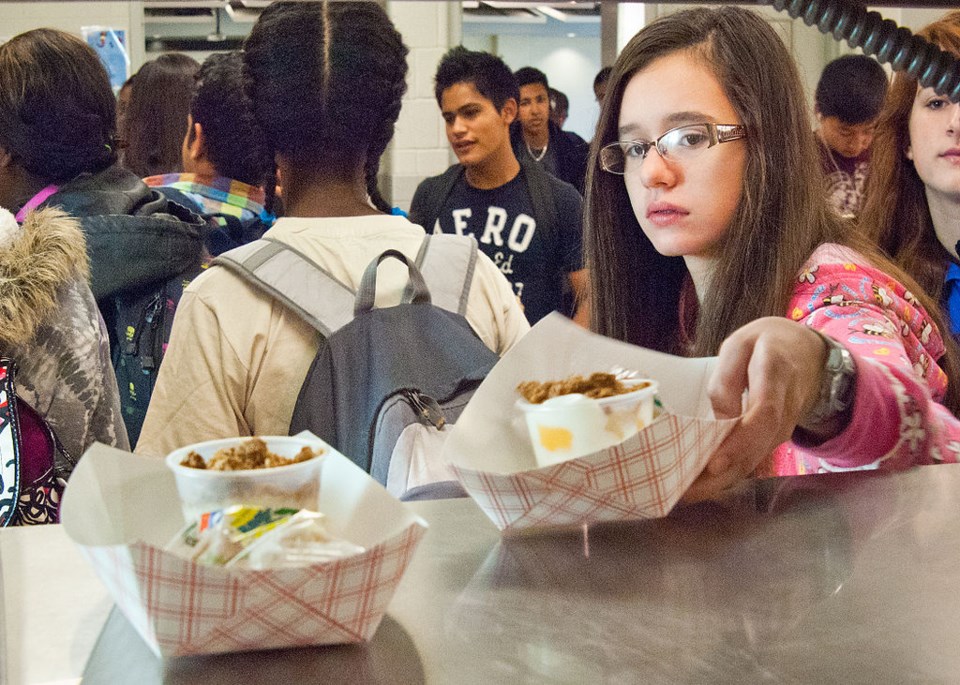Right now, at the St. Vrain Valley School District and almost any public school in the country, a student can eat a school lunch for free, regardless of their family’s income.
When the COVID-19 pandemic began two years ago, regulations for the Department of Agriculture were rolled back, allowing schools to serve free meals to all students regardless of income. But that is set to expire at the end of June after a provision to extend the federal program for a third year — which would have cost $11 billion — did not make it into Congress’s $1.5 trillion spending bill passed Friday.
According to St. Vrain Chief Communications Officer Kerri McDermid, over 20,000 St. Vrain students currently access a free lunch daily in the 31,312-student district. This is more than double the number of students who qualify for free and reduced lunch, approximately 8,500.
“More students have accessed free lunch at school since they became free for all students,” McDermid said in an email.
She added that the current program from the USDA has increased reimbursement rates from previous years, which has covered increased labor and supply costs.
Colorado lawmakers are currently considering Senate Bill 87, which would continue the federal program. The bill as proposed would reimburse public schools for free meals provided to students who are not eligible for free or reduced meals under the federal school meals program.
Proponents of the bill cite universal lunch as a way to ensure students can focus on school and not hunger while getting rid of the stigma associated with free lunches.
Hunger Free Colorado’s COVID food insecurity survey conducted in April 2021 estimated that 16% of children in the state are not getting adequate nutrition due to financial constraints and that one in three Coloradans lacked reliable access to food.
However, to do so would cost an estimated $118 million a year, and lawmakers from both parties expressed concerns about that price tag. The Senate Education Committee, which discussed the bill March 2, delayed a vote so the sponsors of the bill could look for ways to lower the cost.
As drafted, Senate Bill 87 would require district food authorities to opt into the program and serve free meals to all students, while still maximizing the amount of federal reimbursement for students eligible for the federal school meals program.
If approved as proposed, the program would begin for the 2023-24 budget year, subject to the state being selected to participate in a federal demonstration project using Medicaid eligibility to identify students who are eligible for the federal school meals program.

.jpg;w=120;h=80;mode=crop)

